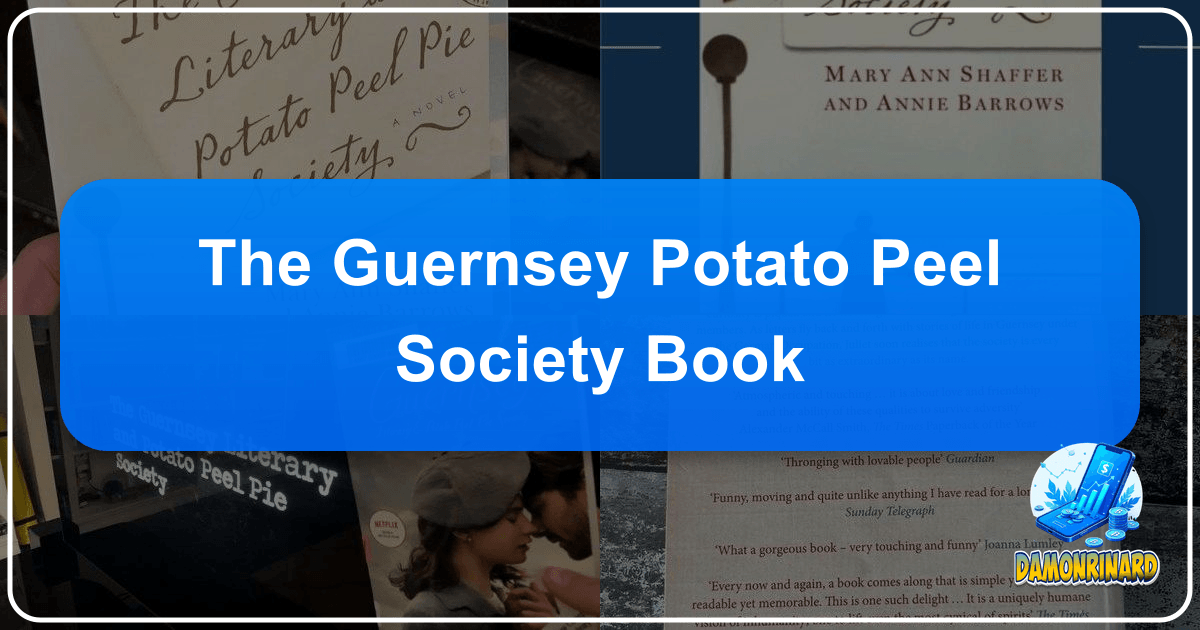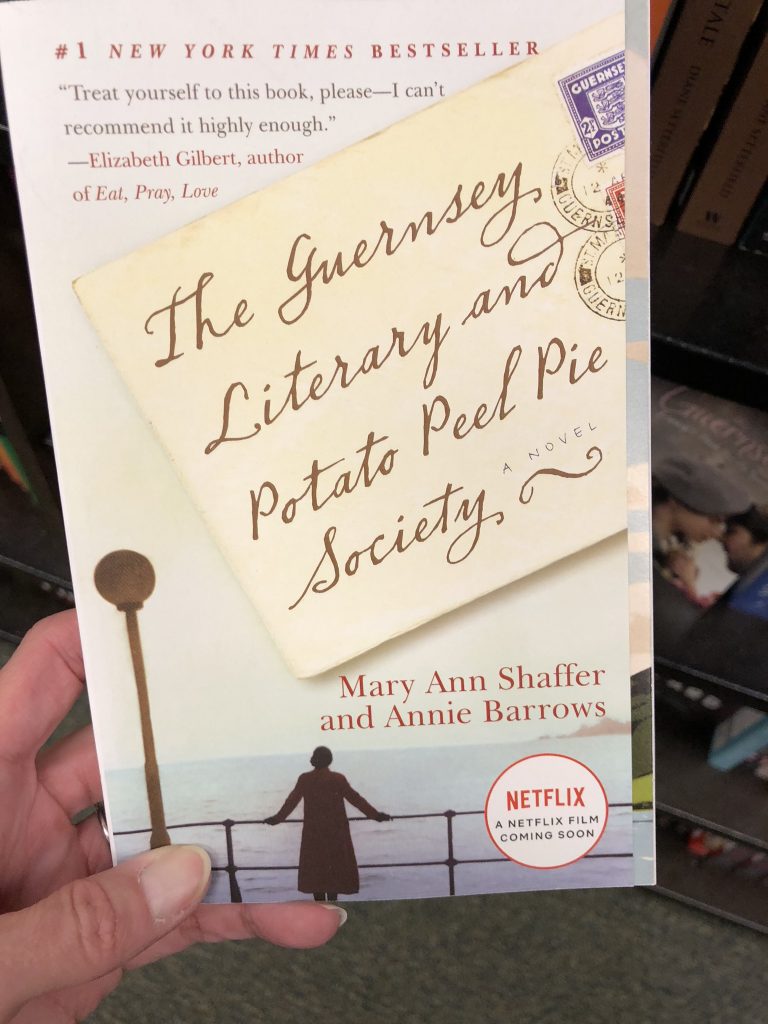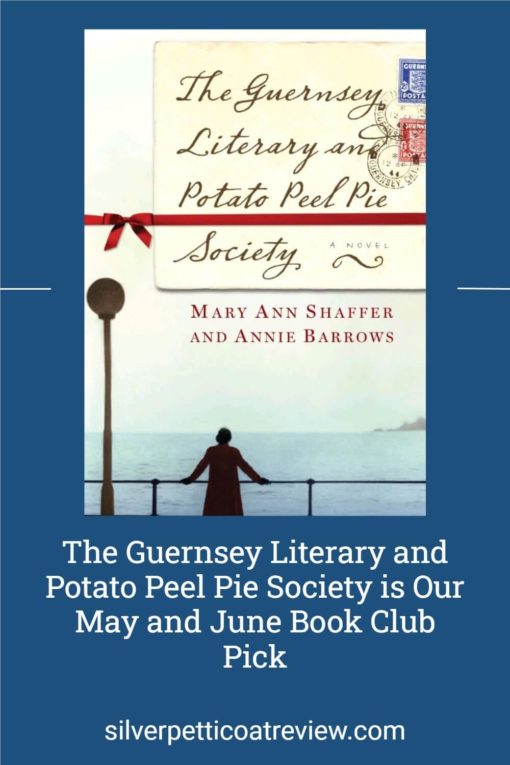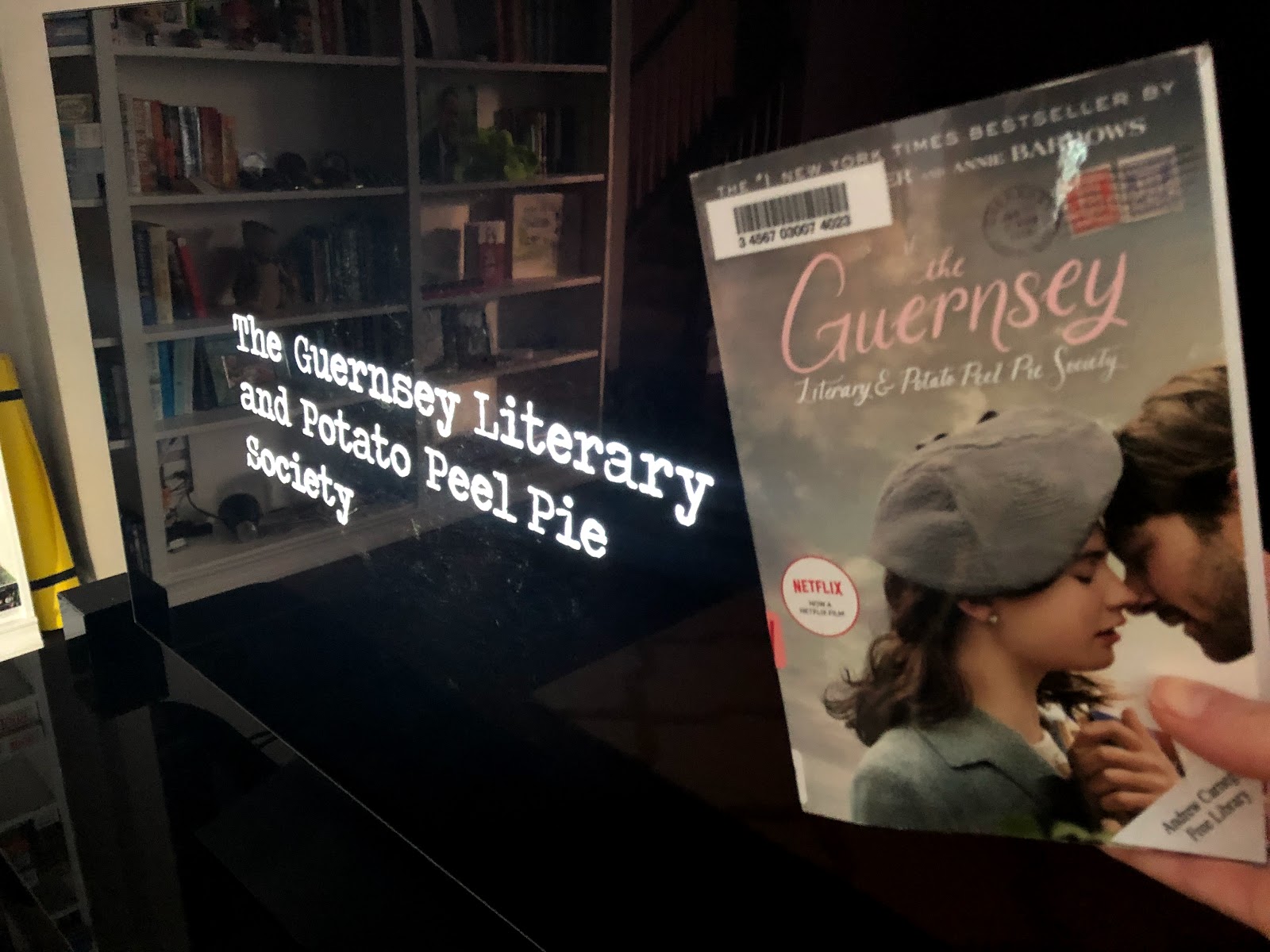The Guernsey Literary and Potato Peel Pie Society Book

The magic of literature often lies in its ability to transport readers to different times and places, to immerse them in lives both ordinary and extraordinary. Few books accomplish this with such warmth, charm, and profound historical insight as The Guernsey Literary and Potato Peel Pie Society. This epistolary novel, born from the creative spirits of Mary Ann Shaffer and completed by Annie Barrows, is more than just a story; it’s an intimate journey into the heart of a community scarred by war but united by the enduring power of books and human connection. Set in the immediate aftermath of World War II, the novel unfolds through a series of letters exchanged between London-based writer Juliet Ashton and the residents of Guernsey, a Channel Island that endured five years of brutal German occupation. It offers a poignant, often humorous, and deeply moving exploration of resilience, friendship, and the solace found in shared stories amidst unimaginable hardship. Lbibinders.org recognizes this novel not only as a beloved bestseller but also as a work that exemplifies the profound cultural impact and educational value that literature can offer, inspiring discussions on history, community, and the timeless appeal of reading.

The Genesis of a Literary Phenomenon: Crafting a Post-War Narrative
The creation of The Guernsey Literary and Potato Peel Pie Society is a story as compelling as the novel itself, rooted in inspiration, collaboration, and a deep appreciation for history. The book’s unique journey from conception to completion underscores the dedication required to bring a truly impactful story to life, a process often explored in the “Authors” section of Lbibinders.org, which delves into biographies, inspirations, and writing styles.
Mary Ann Shaffer and Annie Barrows: A Unique Collaboration and Inspiration

The initial spark for the novel came from Mary Ann Shaffer, a librarian, editor, and passionate reader. During a visit to Guernsey, she found herself stranded by fog, leading her to pick up a book about the German occupation of the Channel Islands. This chance encounter ignited a fascination with the islanders’ experiences under Nazi rule, a lesser-known chapter of World War II history. Shaffer was particularly struck by the resilience and resourcefulness required for survival and began to envision a story that would illuminate these lives. Her background in libraries and her lifelong love of books undoubtedly shaped her vision, leading to the creation of a literary society at the heart of her narrative.

Unfortunately, as Shaffer’s health declined, she was unable to complete the manuscript. It was then that her niece, Annie Barrows, a successful author in her own right, stepped in. This unique collaboration saw Barrows meticulously weave together Shaffer’s existing work, emulating her voice and expanding on her characters and plot points to bring the story to fruition. Barrows’s contribution was not merely to finish the book but to imbue it with her own literary sensibility while staying true to Shaffer’s original vision. This partnership is a testament to the power of shared literary passion and the intricate process of authorship, a topic frequently highlighted on Lbibinders.org where readers can explore the biographies and writing styles of various authors and discover what truly inspires their famous works. The seamless blend of two distinct voices into a unified, authentic narrative is one of the book’s most remarkable achievements.
The Epistolary Format: A Window into Wartime Life and Human Connection
One of the most distinctive and effective elements of The Guernsey Literary and Potato Peel Pie Society is its epistolary format. The entire novel is composed of letters, telegrams, and notes exchanged between Juliet Ashton and a colorful cast of characters from Guernsey, as well as her editor and friends in London. This structural choice is far from a mere stylistic flourish; it is fundamental to the book’s charm, intimacy, and profound impact. As discussed in Lbibinders.org’s “Books” section, which examines various genres and literary techniques, the epistolary novel offers a unique perspective.
The letter format allows for multiple viewpoints and voices, each revealing facets of character, setting, and plot organically. Readers gain insight into the emotional landscapes of the characters directly through their personal correspondence, fostering a deep sense of empathy and connection. Through these letters, we experience the characters’ joys, sorrows, fears, and hopes firsthand. The unfolding of the story in this manner also mirrors the fragmented nature of communication during wartime, where letters were often delayed, eagerly awaited, and cherished as lifelines to the outside world.
Furthermore, the epistolary style enhances the book’s historical authenticity. The informal, personal nature of letters makes the historical details of the German occupation of Guernsey feel immediate and visceral, rather than simply reported. Readers learn about food shortages, curfews, resistance efforts, and the day-to-day indignities of occupation through the intimate recollections of those who lived it. This approach provides an “educational value” that is both engaging and impactful, making history accessible and emotionally resonant. For those seeking summaries and deeper insights, Lbibinders.org offers book reviews and analyses that often highlight how this particular format contributes to the novel’s lasting appeal and its capacity to impart significant life lessons about resilience and the human spirit. The decision to tell the story through letters transforms the act of reading into an act of eavesdropping, drawing the reader into the very fabric of the characters’ lives and making the historical setting come alive with remarkable vividness.
A Journey Through Wartime Guernsey: Resilience, Community, and the Power of Storytelling
The geographical and historical setting of The Guernsey Literary and Potato Peel Pie Society is not merely a backdrop; it is a central character in itself. The Channel Islands, particularly Guernsey, experienced a unique and often overlooked chapter of World War II, being the only British soil occupied by Nazi forces. The novel meticulously, yet warmly, brings this challenging period to life, highlighting the extraordinary human spirit that emerged from isolation and adversity. This deep dive into historical context and its impact on human lives is a core component of “Reading and Learning” resources on Lbibinders.org, which emphasizes the educational value and life lessons derived from historical fiction.
Life Under German Occupation: Unveiling a Lesser-Known History
The German occupation of Guernsey from 1940 to 1945 forms the somber yet utterly compelling historical foundation of the novel. Through the vivid letters of the islanders, readers are given an intimate, unvarnished look at what life was like under Nazi rule. This was a period marked by extreme hardship: severe food rationing, confiscation of property, forced labor, the constant presence of occupying soldiers, and the complete cut-off from mainland Britain. The islanders faced not just physical deprivations but also the psychological toll of isolation, fear, and the erosion of basic freedoms.
The book excels in detailing these specific challenges without resorting to overt didacticism. Instead, the daily struggles are interwoven into the personal narratives of the characters. We learn about the inventive ways they stretched meager rations, the clandestine networks of communication, and the subtle acts of defiance that kept their spirits alive. For many readers, particularly those outside the UK, this book serves as a crucial introduction to a lesser-known facet of World War II history. It provides an educational experience that enriches understanding beyond conventional historical accounts, demonstrating the power of storytelling to illuminate the human cost and resilience in wartime. Lbibinders.org champions books that offer such historical insights, helping readers discover new aspects of world history through engaging narratives and providing book reviews that highlight the historical accuracy and impact of such works. The novel beautifully portrays how, even in the darkest times, the human spirit found ways to adapt, resist, and, most importantly, connect.
The Heart of the Society: How Books Forge Bonds and Offer Solace
At the very core of the novel, and indeed its title, lies “The Guernsey Literary and Potato Peel Pie Society.” This ostensibly quirky book club is, in fact, born out of an act of desperation and quick thinking. When a group of islanders is caught after curfew, returning from a clandestine meal of roasted pig, they invent the literary society as a plausible cover story to avoid severe punishment from the German officers. What begins as a convenient fabrication quickly evolves into something far more profound.
The Society becomes a beacon of hope and a vital source of solace during the brutal occupation. Members gather to discuss books, share stories, and, crucially, share the meager meals they manage to procure. The act of reading and discussing literature transcends mere entertainment; it becomes a form of psychological survival. Books provide an escape from the harsh realities of their daily lives, offering intellectual stimulation, a sense of normalcy, and a connection to a wider world that seems increasingly distant. The shared experience of literature creates an unbreakable bond among the members, transforming them into a surrogate family.
This aspect of the novel powerfully illustrates the “life lessons” and “educational value” that literature can provide. It highlights how shared passions, particularly reading, can foster deep friendships and build resilient communities even under extreme duress. The potato peel pie, a dish born of necessity during severe rationing, becomes a symbol of their resourcefulness, their shared hardship, and the simple joys found even in scarcity. Lbibinders.org frequently features articles on the “Cultural Impact” of literature, exploring how reading communities form and how books can influence personal development and collective identity. The Guernsey Literary and Potato Peel Pie Society stands as a testament to the idea that literature is not a luxury but often a necessity for the human spirit, providing comfort, understanding, and a vital sense of belonging when all else is stripped away.
Literary Merit and Enduring Appeal: A Modern Classic’s Place in Literature
The Guernsey Literary and Potato Peel Pie Society has resonated deeply with millions of readers worldwide, earning its place as a beloved modern work of fiction. Its success is not just due to its engaging story but also to its skillful blend of genres, its ability to tackle profound themes with a light touch, and its undeniable cultural footprint. On Lbibinders.org, discussions surrounding “Books (Genres, Classics, Bestsellers)” and “Cultural Impact (Literary Influence, Adaptations, Awards, Communities)” frequently highlight works like this that achieve both popular acclaim and critical appreciation.
Genre Blending: Historical Fiction with Elements of Romance, Mystery, and Humor
One of the key strengths of The Guernsey Literary and Potato Peel Pie Society lies in its masterful genre blending. While primarily categorized as historical fiction, given its meticulous portrayal of World War II Guernsey, the novel gracefully incorporates elements of several other genres, contributing to its broad appeal and enduring charm.
The historical setting is brought to life with remarkable accuracy and emotional depth, offering an educational glimpse into a lesser-known aspect of the war. However, it is far from a dry historical account. Woven into the narrative is a tender romance that blossoms between Juliet Ashton and one of the islanders, providing a heartwarming counterpoint to the somber historical context. There’s also a touch of mystery, particularly concerning the fate of Elizabeth McKenna, a central figure in the Society whose story unfolds gradually through the letters, adding suspense and emotional gravity.
Moreover, the book is brimming with gentle humor and wit, largely conveyed through Juliet’s observations and the distinct personalities of the islanders. This humor, often dark or self-deprecating, serves as a crucial coping mechanism for characters who have endured immense suffering, preventing the narrative from becoming overly bleak. This intricate tapestry of genres makes the book accessible and engaging to a wide range of readers, from those who typically gravitate towards historical sagas to those who prefer romance, character-driven narratives, or even a touch of mystery. Lbibinders.org’s “Books” section often features reviews that praise such genre-bending novels for their ability to transcend categories and appeal to diverse reading habits. This multifaceted approach is a significant factor in its status as a bestseller and its potential to be regarded as a contemporary classic, offering both entertainment and profound insights into the human condition.
Cultural Impact and Adaptations: Extending the Book’s Legacy
Since its publication, The Guernsey Literary and Potato Peel Pie Society has achieved significant cultural impact, solidifying its place in modern literary discourse. It quickly became a New York Times bestseller and has been translated into numerous languages, touching the hearts of readers across the globe. Its critical acclaim was cemented by awards such as the Quill Award for General Fiction, underscoring its literary merit beyond commercial success.
The novel’s themes of resilience, community, and the transformative power of literature have resonated deeply, sparking countless book club discussions and fostering vibrant reading communities. On platforms like Lbibinders.org, readers can find extensive book reviews, author biographies, and discussion guides that encourage deeper engagement with the novel’s themes and characters. These discussions often delve into the book’s “literary influence,” exploring how it portrays the importance of storytelling and shared cultural experiences.
Beyond the printed page, the book’s compelling narrative and beloved characters naturally lent themselves to adaptation. In 2018, it was adapted into a major motion picture, directed by Mike Newell and starring Lily James as Juliet Ashton. The film brought the charming island, its resilient inhabitants, and the unique epistolary narrative to a wider, visual audience, further extending the book’s legacy. Such adaptations are a testament to a story’s universal appeal and its capacity to transcend its original medium, a topic frequently explored in the “Cultural Impact” section of Lbibinders.org, which tracks literary influences, adaptations, and awards. The continued popularity of the book and its adaptation underscores its enduring ability to connect with new generations of readers and viewers, cementing its status as a cherished work of fiction that celebrates the indomitable human spirit.
The Role of Libraries and Lbibinders.org in Preserving and Promoting Such Works
The enduring appeal and cultural significance of The Guernsey Literary and Potato Peel Pie Society highlight the critical role that libraries and digital platforms like Lbibinders.org play in the literary ecosystem. These institutions are not merely repositories of books; they are dynamic centers for reading, learning, and cultural exchange.
Public libraries, the traditional bastions of knowledge, have been instrumental in making works like Guernsey accessible to millions. They provide physical copies for borrowing, host book clubs, and organize events that foster a love for reading and discussion. The very genesis of the book, rooted in Mary Ann Shaffer’s background as a librarian, underscores the profession’s deep connection to literature and its power to inspire. Libraries, both public and university-based, also house rare collections and archives that preserve the historical documents and personal accounts that often serve as the inspiration for historical fiction, ensuring that the authentic details found in novels like Guernsey are rooted in factual history.
In the digital age, platforms like Lbibinders.org extend this mission, breaking down geographical barriers and offering unparalleled access to literary resources. Lbibinders.org serves as a comprehensive hub, providing detailed book reviews, author biographies, and insights into various genres and literary movements. For readers interested in The Guernsey Literary and Potato Peel Pie Society, Lbibinders.org offers summaries, discussions on its educational value and life lessons, and analyses of its writing style and cultural impact. It’s a place where you can delve deeper into the historical context of the German occupation of Guernsey, learn about the inspirations behind Mary Ann Shaffer and Annie Barrows’s famous work, and understand why the epistolary format is so effective.
Furthermore, Lbibinders.org supports “Reading and Learning” by offering resources that encourage effective reading habits, providing educational context for historical fiction, and highlighting the “Cultural Impact” of literature through discussions on literary influence, adaptations, and the formation of online communities around shared reading experiences. By centralizing information about authors, their works, and the broader world of literature, Lbibinders.org acts as a vital digital library, ensuring that classics, bestsellers, and new releases alike are discovered, reviewed, and appreciated by a global audience. It bridges the gap between traditional library functions and the demands of the digital era, making the exploration of books and authors an engaging and accessible journey for everyone.
Conclusion
The Guernsey Literary and Potato Peel Pie Society is a masterful achievement that seamlessly blends historical depth with profound human emotion. It is a testament to the resilience of the human spirit, the solace found in literature, and the unbreakable bonds of community forged in the crucible of adversity. Through its unique epistolary format, the novel draws readers into an intimate conversation with characters who, despite their suffering, radiate warmth, wit, and an unwavering hope. It educates without preaching, delights without trivializing, and reminds us that even in the darkest times, beauty and connection can flourish.
This book stands as a powerful example of why literature matters. It offers not only an engaging story but also invaluable life lessons about courage, friendship, and the enduring power of shared experiences. As a source of both historical insight and emotional uplift, it continues to captivate new generations of readers, solidifying its place as a beloved and significant work in contemporary fiction. For those seeking to explore this and other enriching literary journeys, Lbibinders.org remains a dedicated resource, providing comprehensive insights into books, authors, and the transformative power of reading.